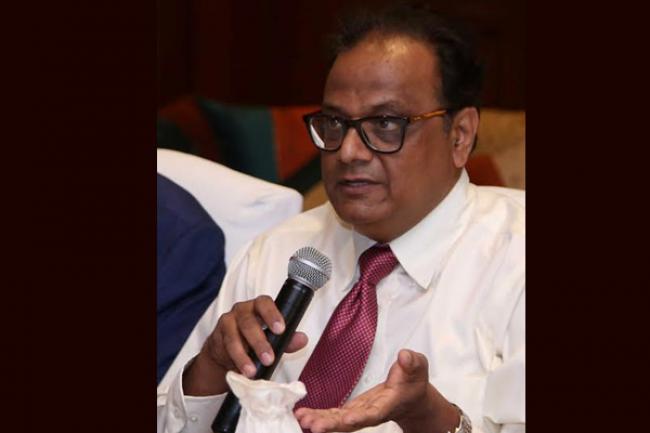08 Mar 2017, 08:43 am Print

Despite rise in preventive healthcare and medical progress, cancer is advancing brutally, destroying lives and spreading misery.
However, with the advent of robotic surgery, there are stories of hope now emerging in women’s fight against cancer. Increasingly gynaecologists in India are deploying this surgical option to treat all types of malignant cancers that affect women.
While breast cancer and cervical cancer are the two most prevalent forms of female cancer, ovarian cancer and endometrial cancer are claiming a lot of lives as well. It is estimated that one in two women diagnosed with breast cancer in India dies early, while every 8 minutes one woman dies of cervical cancer. Just imagine, in 2016, nearly 70,000 Indians died of cervical cancer – the second most common cancer among women, accounting for 23 per cent of all cases. Breast cancer, according to the National Cancer Registry, is the most common cancer in women in India, with 27 per cent of all cases.
A host of reasons, mainly lifestyle related, have led to the growing incidence of cancers among women. According to a study, obesity is one of the primary reasons for the rise in cancer cases – while it affects both sexes, women are more likely to be affected by the obesity-related cancer types.
But to root out cancer, new tools are at hand. According to gynaecologists, robotic surgery is now fast becoming the preferred option to treat cancer as it scores over conventional surgery in terms of minimizing blood loss, drastically reducing post operative recovery time and bringing precision to the procedure, thus saving healthy tissue from damage.
Says Dr Anshumala Shukla-Kulkarni, Consultant Gynaecology Robotic Surgery, Kokilaben Dhirubhai Ambani Hospital & Medical Research Institute, Mumbai, “Robotics is beneficial in endometrial cancer surgery, in early cervical cancers and Stage 1 ovarian cancers.” She points out that robotic surgery offers doctors an improved vision and maneuverability when compared to conventional surgery.
“Open surgery has a lot of morbidities post surgery, pain is more, blood loss is more and often due to poor visualization, the outcome is not as good. Robotics gives us the ease of 3D vision which has a magnified view, the hand instruments have more than human hand rotation providing more precision and flexibility,” adds Dr Anshumala.
Apart from ovarian cancer, cervical cancer and endometrial cancer robotic surgery is also used for groin node dissection for cancer of the vulva says Dr Sabhyata Gupta, Director Gynaecology at Medanta, and also the first gyanecologist to perform robotic surgeries on malignant and benign conditions affecting women.
According to Dr Sudhir Rawal, Director Surgical Oncology Chief of Urogenital Oncology at the Rajiv Gandhi Cancer Institute & Research Centre, New Delhi, “Robotic surgeries are most useful in gynaecological malignancies where the application of laparoscopy is hindered by the heterogeneity of cancer patients who are often elderly obese and have multiple co-morbidities.”
The Vattikuti Foundation has helped expand Robotic Surgery to nearly 50 hospitals in a dozen Indian cities, in just five years, while the number of trained robotic surgeons has grown to 220.
Vattikuti Foundation began promoting Robotic Surgery in the US in 1997 and has since played a stellar role in spreading it across the USA, Europe and India. Under the Vattikuti Foundation program, surgeons working at the Vattikuti Urology Center at Henry Ford Hospital in Detroit developed procedures for Prostate Cancer surgery which has become the Gold standard--Robotic Prostatectomy--in the US. Since then the Foundation has been working with surgeons around the world to pioneer various Robotic procedures including one for kidney transplant, developed co-operatively by Indian surgeons from Hospitals in Delhi and Ahmedabad. Indian surgeons have been adapting to this new age tool with great enthusiasm and skill.
As its contribution, Vattikuti Foundation, is committed to offering 100 paid fellowships to super specialist surgeons, over the next 5 years, to become Robotic surgeons.
Vattikuti Foundation organises Robotic Surgeons conference every six months, with over 100-125 Robotic Surgeons participating and sharing their experience and techniques.
- Same price, smarter result: Anthropic drops major AI surprise
- Meta, NVIDIA announce long-term infrastructure partnership. Key details inside
- No one above the law: UN experts call for action over Epstein Files
- Teen with loaded shotgun races toward US Capitol — Arrested in dramatic standoff
- Power shift in Dhaka! Tarique Rahman takes oath as Bangladesh PM





-1763561110.jpg)
